Digestive Disorders

Acupuncture is a time-honored technique rooted in Traditional Chinese Medicine that involves the insertion of fine needles into specific points on the body to relieve pain and support the treatment of various health conditions. Among its many benefits, acupuncture has shown promising results in addressing a wide range of digestive disorders.
Digestive disorders encompass conditions that affect the esophagus, stomach, intestines, and rectum—such as bloating, constipation, diarrhea, and abdominal pain. Scientific studies increasingly support the effectiveness of acupuncture in managing these issues. For example, a study published in the *Journal of Gastroenterology and Hepatology* found that acupuncture significantly improved symptoms of functional dyspepsia—including bloating, nausea, and a feeling of fullness—after patients received treatments three times a week for eight weeks.
Similarly, research in the Journal of Traditional Chinese Medicine reported that combining acupuncture with traditional Chinese herbal medicine effectively alleviated symptoms of Irritable Bowel Syndrome (IBS), such as abdominal pain, constipation, and diarrhea, when administered twice weekly over six weeks.
Acupuncture works by regulating the body’s vital energy, or “Qi”, to restore internal balance and activate natural healing mechanisms. It also stimulates nerve endings in the gut, helping to regulate muscle movement, improve blood flow, and reduce inflammation. For many patients, it provides not only physical relief but also emotional benefits—such as reduced stress and anxiety, which are often underlying contributors to digestive problems.
At the Naturopath Osteopath Clinic, our experienced acupuncture team has helped hundreds of individuals manage digestive conditions using a holistic, personalized approach. Whether you’re struggling with IBS, inflammatory bowel disease, or general gastrointestinal discomfort, our integrative treatments are designed to support both immediate symptom relief and long-term digestive health.
What are the symptoms of Digestive Disorders?
Common Symptoms of Digestive Disorders
Digestive disorders can present with a wide range of symptoms, depending on the underlying condition. Some of the most common symptoms include:
- Abdominal pain or cramping – Discomfort or pain anywhere between the chest and groin area
- Bloating – A feeling of fullness or swelling in the abdomen
- Gas and flatulence – Excessive gas that may cause discomfort or embarrassment
- Constipation – Difficulty passing stools or infrequent bowel movements
- Diarrhea – Frequent, loose, or watery stools
- Heartburn or acid reflux – A burning sensation in the chest caused by stomach acid moving into the esophagus
- Nausea and vomiting – A sensation of unease and discomfort with the urge to vomit
- Loss of appetite – Reduced desire to eat
- Unintentional weight loss – Losing weight without trying, often a sign of malabsorption
- Changes in stool appearance – Unusual color, consistency, or presence of blood or mucus in stool
- Fatigue – Ongoing tiredness often related to nutrient deficiencies or chronic inflammation
If you’re experiencing any of these symptoms persistently, it’s important to seek medical attention to determine the underlying cause and receive appropriate treatment.

What are Health Benefits of Acupuncture for Digestive Disorders?
In recent years, the use of acupuncture for managing digestive disorders has gained significant popularity—and for good reason. It is now considered one of the most effective and commonly used holistic therapies for addressing various gastrointestinal concerns.
Acupuncture has been shown to relieve both stomach and intestinal pain, reduce bloating, and ease nausea. Many individuals also experience improved stool quality and frequency following treatment. By stimulating specific points on the body, acupuncture works to regulate the digestive system, enhance circulation, and support the body’s natural healing mechanisms.
For those who suffer from chronic or recurring digestive issues, acupuncture offers a safe, non-invasive, and long-term solution. It not only addresses symptoms but also promotes overall digestive balance—helping maintain gut health and prevent future discomfort.
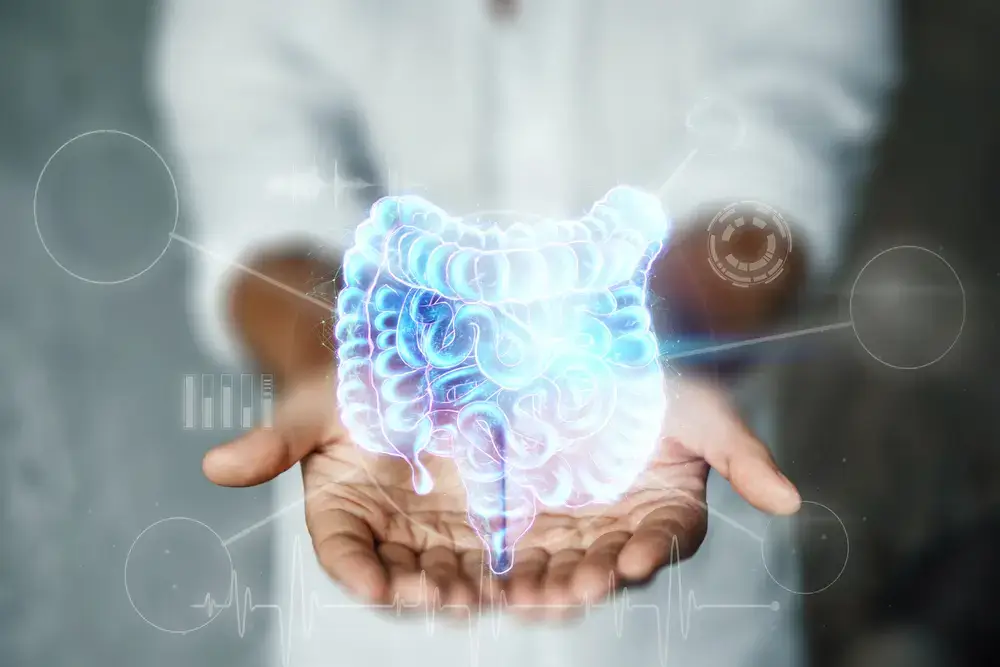
What are digestive disorders?
Digestive disorders are health conditions that affect the body’s ability to properly digest and absorb food. These disorders can range from mild discomfort to chronic, debilitating issues and often arise from imbalances within the digestive system.
A variety of factors can contribute to the development of digestive disorders, including certain medications, underlying medical conditions, infections, poor dietary habits, stress, and other lifestyle choices. Early recognition and holistic treatment are key to restoring digestive health and improving overall well-being.

What causes digestive disorders?
Digestive disorders can be caused by a wide range of factors that disrupt the normal functioning of the gastrointestinal (GI) system. These causes may vary from lifestyle habits to underlying medical conditions. Common contributors include:
- Poor Diet – High intake of processed foods, low fiber, excessive sugar, and unhealthy fats can disrupt gut function.
- Chronic Stress – Ongoing stress affects gut-brain communication and may lead to issues like IBS or indigestion.
- Food Sensitivities or Intolerances – Reactions to certain foods, such as lactose or gluten, can cause inflammation, bloating, or pain.
- Infections – Bacterial, viral, or parasitic infections can irritate or damage the lining of the digestive tract.
- Medications – Long-term use of antibiotics, NSAIDs, and antacids can disturb gut flora and digestive function.
- Hormonal Imbalances – Thyroid dysfunction or changes in estrogen levels can affect digestion and metabolism.
- Autoimmune Conditions – Diseases like Crohn’s or celiac disease involve the immune system attacking parts of the GI tract.
- Lack of Physical Activity – A sedentary lifestyle slows down digestion and can lead to constipation.
- Alcohol and Smoking – These habits can weaken digestive function and irritate the gut lining.
Identifying and addressing the root cause of a digestive disorder is essential for effective and lasting relief. A holistic approach that includes nutrition, lifestyle changes, and integrative therapies—such as acupuncture or naturopathic care—can significantly support digestive health.
How does Acupuncture work to help Digestive Disorders?
People who suffer from digestive issues such as irritable bowel syndrome and stomach ulcers may find relief through acupuncture because it stimulates and clears energy and blocks energy flow in the body. Acupuncture can help complement conventional treatments for some conditions.
There are many digestive disorders that acupuncture can help, such as heartburn, constipation, and irritable bowel syndrome. One way that it may work is by stimulating the vagus nerve in the throat, which can regulate digestion and stomach acid production. The needles also stimulate circulation in the area of the stomach and gut, which helps to release tension in these areas. Acupuncture can help with functional dyspepsia by triggering an anti-inflammatory response in the intestines.
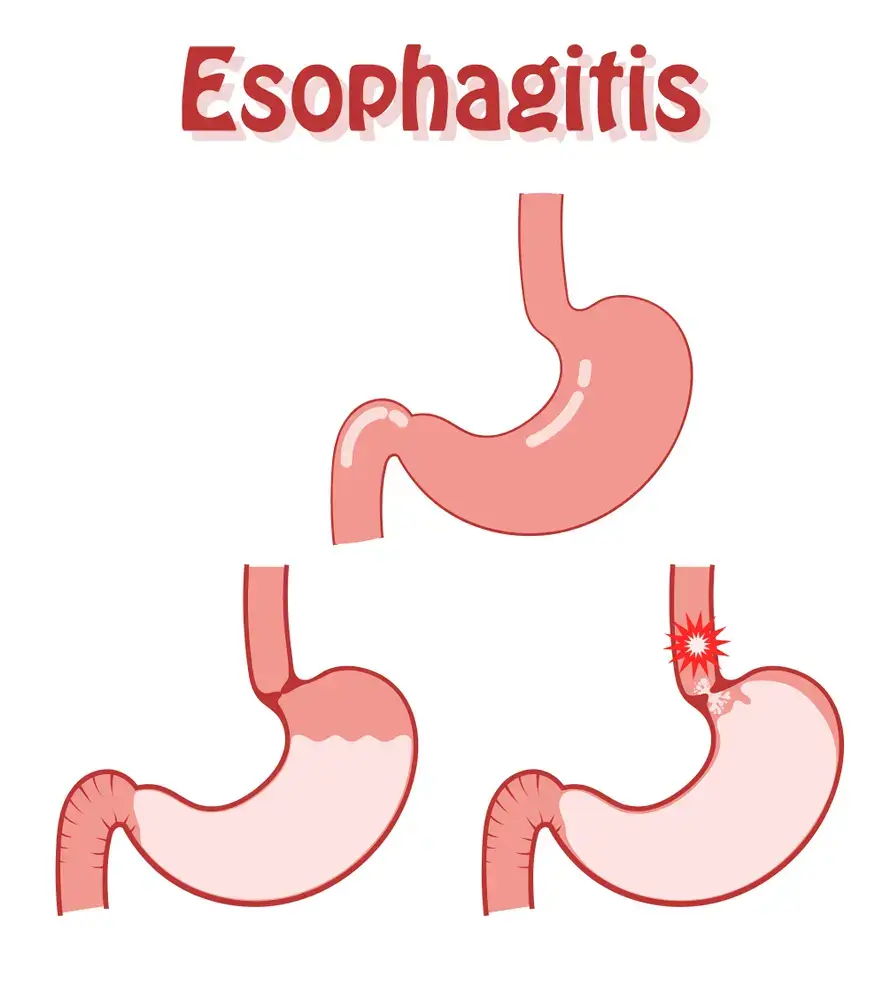
Esophagitis:
Esophagitis is an inflammation of the esophagus—the tube that connects the throat to the stomach. This condition can cause pain, irritation, and difficulty swallowing. If left untreated, esophagitis may lead to more serious complications such as scarring, narrowing of the esophagus, or chronic discomfort.
Common Causes of Esophagitis:
- Gastroesophageal Reflux Disease (GERD) – Stomach acid backing up into the esophagus is one of the most common causes.
- Infections – Particularly in individuals with weakened immune systems (e.g., fungal, viral, or bacterial infections).
- Medication-Induced – Certain medications can irritate the esophagus, especially if taken without enough water.
- Allergic Reactions – Eosinophilic esophagitis is caused by allergic responses to specific foods or environmental allergens.
- Chemical Injury – Ingestion of corrosive substances can severely damage the esophageal lining.
Symptoms of Esophagitis:
- Pain or difficulty when swallowing (dysphagia)
- Heartburn or chest pain
- Acid regurgitation
- Throat soreness or hoarseness
- Food feeling “stuck” in the throat
Treatment for esophagitis depends on its underlying cause and may include dietary modifications, medications to reduce acid or inflammation, and in some cases, integrative therapies such as acupuncture or naturopathic care to support gut healing and immune balance.
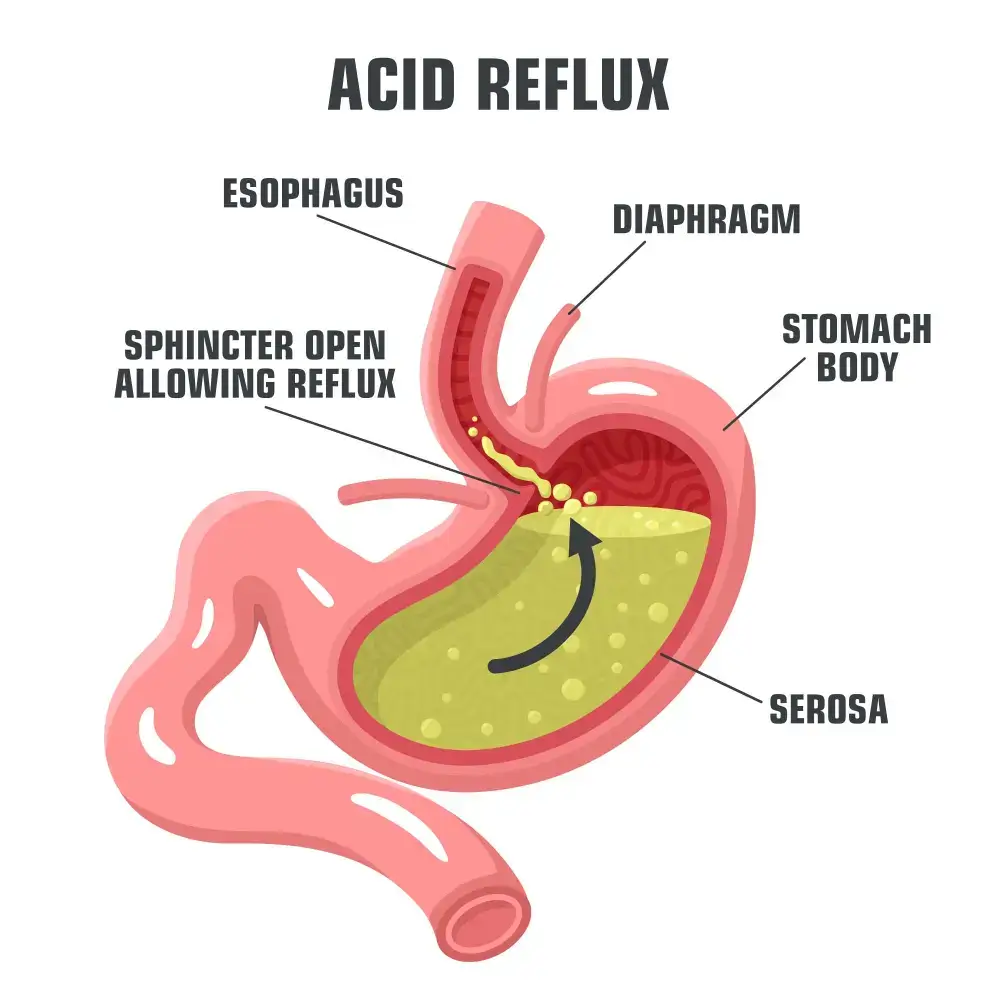
Acid Reflux:
Acid reflux occurs when stomach acid flows backward into the esophagus, causing irritation and a burning sensation commonly known as heartburn. This condition is also referred to as gastroesophageal reflux (GER) and can affect individuals of all ages.
Causes of Acid Reflux:
- Weak or relaxed lower esophageal sphincter (LES) – This valve is supposed to keep stomach acid from rising up; if it weakens, acid can escape.
- Overeating or eating too quickly
- Obesity or pregnancy – These can increase pressure on the abdomen and stomach.
- Smoking or alcohol consumption
- Spicy, fatty, or acidic foods
- Hiatal hernia
- Medications – Including NSAIDs, certain muscle relaxants, and blood pressure medications
Symptoms of Acid Reflux:
- Burning sensation in the chest (heartburn), especially after meals
- Regurgitation of sour liquid or food
- Chronic cough, hoarseness, or sore throat
- Difficulty swallowing (dysphagia)
- Feeling of a lump in the throat
If acid reflux occurs more than twice a week, it may indicate Gastroesophageal Reflux Disease (GERD), a more chronic and severe form of the condition.
Management and Treatment Options:
Treatment typically involves dietary and lifestyle modifications, such as eating smaller meals, avoiding trigger foods, not lying down after eating, and maintaining a healthy weight. In more persistent cases, medications such as antacids or proton pump inhibitors (PPIs) may be prescribed.
Integrative approaches—like acupuncture, naturopathic dietary support, and stress reduction techniques—can also play a valuable role in reducing symptoms and promoting long-term digestive health.
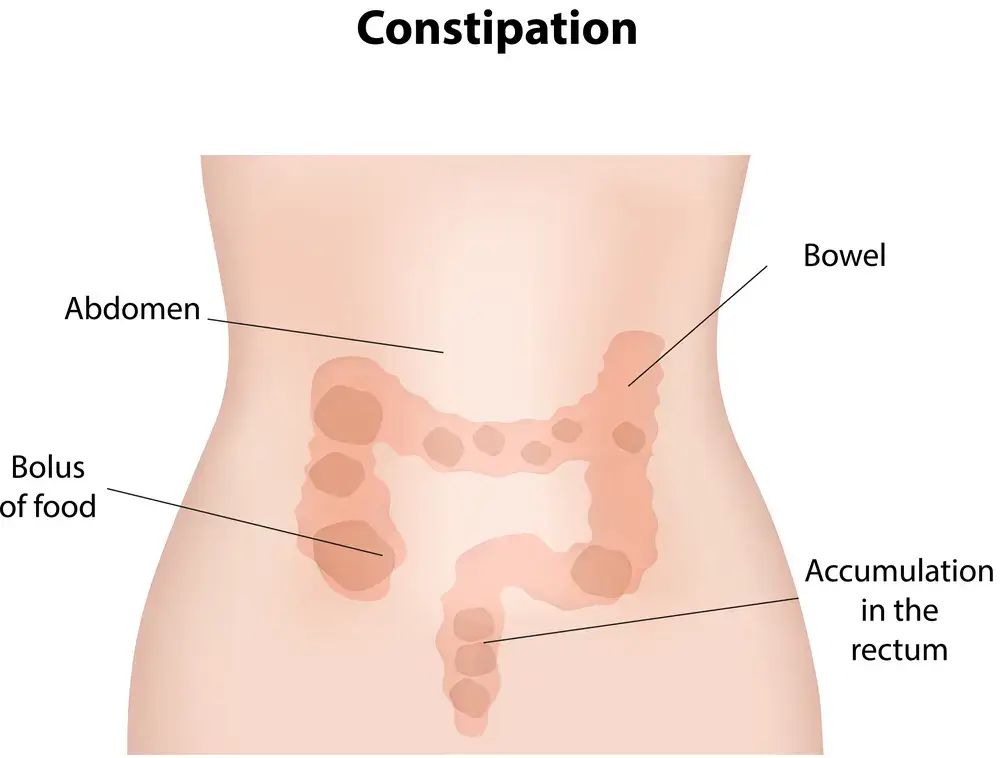
Constipation
Constipation is a common digestive condition characterized by infrequent or difficult bowel movements, typically defined as having fewer than three bowel movements per week. It can also involve hard, dry stools, abdominal discomfort, and a feeling of incomplete evacuation.
Common Causes of Constipation:
- Low-fiber diet – Insufficient intake of fruits, vegetables, and whole grains can slow digestion.
- Inadequate fluid intake – Dehydration leads to harder stools that are more difficult to pass.
- Lack of physical activity – Sedentary lifestyles can reduce intestinal motility.
- Ignoring the urge to go – Delaying bowel movements can lead to stool hardening.
- Medications – Painkillers, antacids, antidepressants, and iron supplements may contribute.
- Hormonal imbalances or thyroid dysfunction
- Underlying conditions – Such as irritable bowel syndrome (IBS), diabetes, or neurological disorders
Symptoms of Constipation:
- Infrequent bowel movements
- Straining during bowel movements
- Hard, dry, or lumpy stools
- Abdominal bloating or discomfort
- Feeling like the bowel hasn’t completely emptied
Holistic Support and Treatment:
Constipation can often be relieved with lifestyle changes such as increased dietary fiber, hydration, and exercise. In more persistent cases, natural therapies may be beneficial.
Our team at the Naturopath Osteopath Clinic offers integrative approaches—including acupuncture, naturopathic digestive support, and personalized wellness plans—to help restore regularity and promote long-term gut health.
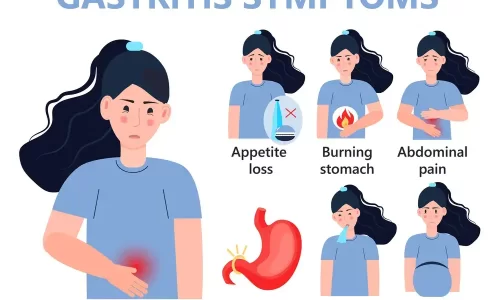
Gastritis:
Gastritis is a condition characterized by inflammation of the stomach lining. This inflammation can be either acute (sudden and severe) or chronic (developing over time), and it may lead to discomfort, pain, or even ulcers if left untreated.
Common Causes of Gastritis:
- Infection with Helicobacter pylori – A common bacterial infection that damages the stomach lining.
- Long-term use of NSAIDs – Nonsteroidal anti-inflammatory drugs like ibuprofen or aspirin can irritate the stomach lining.
- Excessive alcohol consumption – Alcohol can erode the mucous lining and increase acid production.
- Autoimmune disorders – The immune system mistakenly attacks stomach cells.
- Chronic stress – Stress can increase acid levels and reduce the stomach's protective barriers.
- Bile reflux – When bile flows into the stomach from the small intestine.
Symptoms of Gastritis:
- Upper abdominal pain or burning sensation
- Nausea or vomiting
- Bloating or a feeling of fullness
- Loss of appetite
- Indigestion or belching
- In more severe cases: black stools or vomiting blood (seek immediate medical attention)
Natural and Holistic Management:
Treatment of gastritis depends on the underlying cause and severity. Conventional treatments often include antacids, proton pump inhibitors, or antibiotics (for H. pylori).
At the Naturopath Osteopath Clinic, we offer integrative solutions including acupuncture, dietary adjustments, herbal medicine, and stress-reduction techniques to support stomach healing and restore digestive balance.
Early detection and a personalized care plan can prevent gastritis from progressing and help maintain long-term gastrointestinal health.

Bloating:
Bloating is a common digestive complaint characterized by a feeling of fullness, tightness, or swelling in the abdomen. It may be accompanied by visible distension, excessive gas, or discomfort, and often worsens after eating.
Common Causes of Bloating:
- Overeating or eating too quickly
- Gas-producing foods – such as beans, lentils, broccoli, cabbage, and carbonated drinks
- Food intolerances – like lactose or gluten intolerance
- Imbalance in gut bacteria – such as small intestinal bacterial overgrowth (SIBO)
- Constipation – which can trap gas in the intestines
- Stress and anxiety – which can affect digestion and gut motility
- Underlying conditions – such as irritable bowel syndrome (IBS) or gastrointestinal infections
Symptoms Associated with Bloating:
- Abdominal swelling or distension
- Frequent belching or passing gas
- Cramping or mild abdominal pain
- Feeling overly full after small meals
Natural and Holistic Management of Bloating:
Relief from bloating often begins with identifying and addressing the root cause. This may involve dietary changes, mindful eating habits, or targeted therapies.
At the Naturopath Osteopath Clinic, our team uses holistic tools such as acupuncture, naturopathic nutritional guidance, digestive enzyme support, and herbal remedies to help reduce bloating and restore gut harmony.
If you're experiencing persistent or painful bloating, it’s important to seek professional care to rule out underlying conditions and receive a personalized treatment plan.
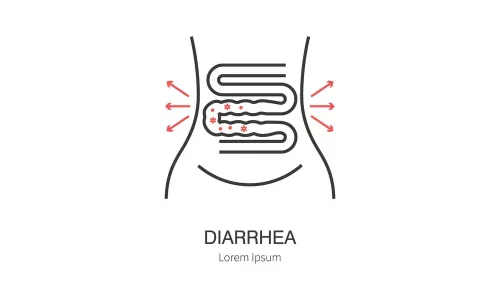
Diarrhea:
Diarrhea is a common digestive issue characterized by frequent, loose, or watery bowel movements. It can occur as an acute episode lasting a few days or as a chronic condition lasting several weeks, often indicating an underlying health issue that requires attention.
Common Causes of Diarrhea:
- Viral or bacterial infections – such as norovirus, rotavirus, or food poisoning
- Food intolerances or allergies – including lactose or gluten sensitivity
- Medications – especially antibiotics or antacids containing magnesium
- Digestive disorders – such as irritable bowel syndrome (IBS), Crohn’s disease, or ulcerative colitis
- Stress and anxiety – which can disrupt gut motility
- Contaminated food or water
Symptoms of Diarrhea May Include:
- Frequent loose or watery stools
- Urgency to use the bathroom
- Abdominal cramps or bloating
- Nausea or vomiting
- Fatigue or dehydration
Holistic and Naturopathic Approach:
Treating diarrhea requires addressing both the symptoms and the root cause. Acute cases may resolve with hydration and dietary care, while chronic cases benefit from a comprehensive evaluation.
At the Naturopath Osteopath Clinic, our integrative care team uses acupuncture, nutritional counseling, herbal medicine, and gut microbiome support to help restore digestive balance and reduce inflammation. We focus on natural healing approaches that are personalized and effective.
If you are experiencing frequent or prolonged diarrhea, consult with a qualified healthcare provider to ensure safe and effective treatment tailored to your needs.
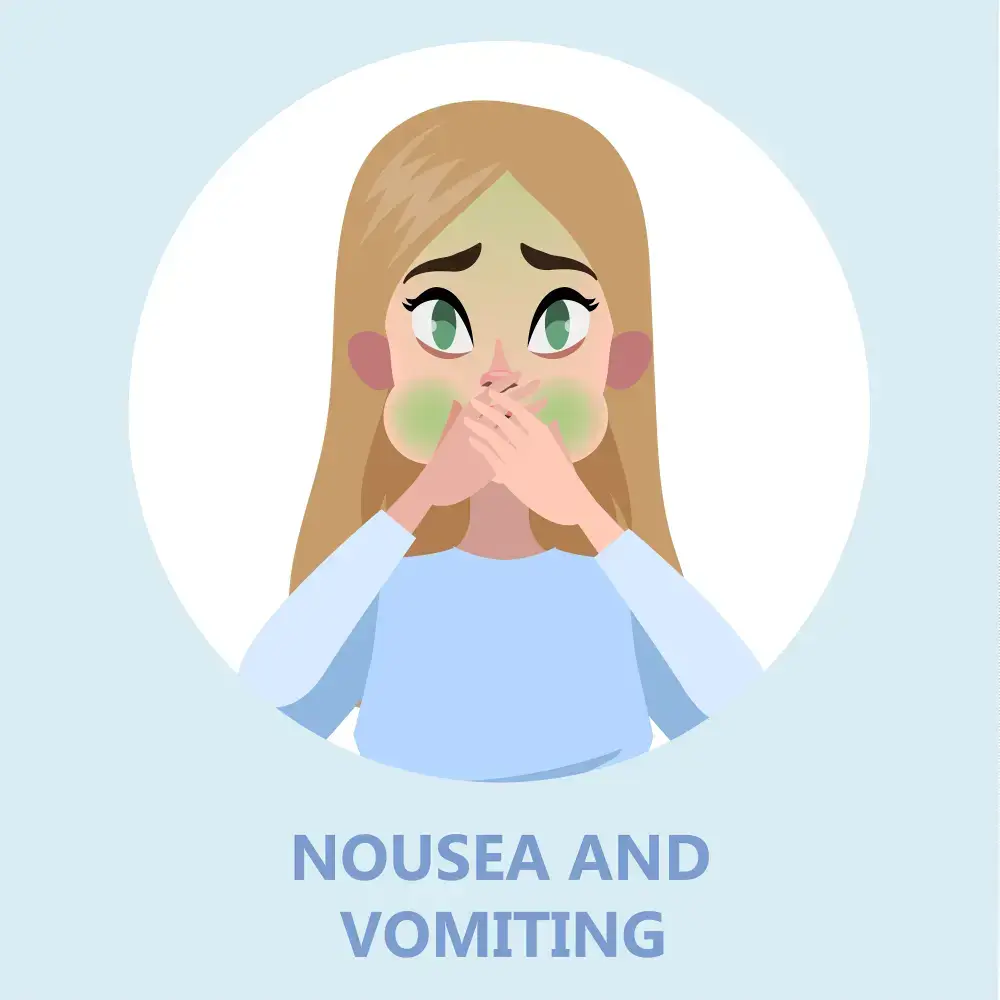
Nausea:
What is Nausea?
Nausea is an uncomfortable sensation in the stomach that often precedes vomiting. It is not a disease itself, but a symptom of many underlying conditions. Nausea can be acute or chronic and may be accompanied by dizziness, sweating, and a general sense of unease.
Common Causes of Nausea:
- Digestive disturbances – such as indigestion, gastritis, or food poisoning
- Motion sickness or inner ear disorders
- Viral or bacterial infections
- Pregnancy – especially in the first trimester
- Medications – including chemotherapy drugs and painkillers
- Stress, anxiety, or migraine headaches
- Overeating or consuming fatty/spicy foods
Symptoms That May Accompany Nausea:
- Queasiness or unsettled stomach
- Loss of appetite
- Excessive salivation
- Dizziness or lightheadedness
- Cold sweats or general weakness
Holistic and Naturopathic Relief for Nausea:
Managing nausea begins with identifying its root cause. At the Naturopath Osteopath Clinic, we offer natural, non-invasive approaches to relieve nausea and restore digestive comfort.
Our care may include acupuncture, herbal remedies (such as ginger or peppermint), nutritional counseling, and mind-body therapies to soothe the nervous system and improve gut function. These treatments are tailored to support both acute and chronic nausea—especially in cases related to digestion, pregnancy, or stress.
If you’re experiencing persistent or unexplained nausea, consult with a licensed naturopathic doctor for a personalized and holistic treatment plan.
Naturopath Osteopath Clinic: Acupuncture Services

Musculoskeletal Pain
At Naturopath Osteopath Clinic, our Acupuncture treatments effectively address musculoskeletal pain by reducing inflammation, improving circulation, and relieving muscle tension. Whether you're dealing with back pain, joint stiffness, or repetitive strain injuries, our acupuncture therapy offers a natural, drug-free path to pain relief and mobility restoration.

Obstetrics, Gynecological Conditions
At Naturopath Osteopath Clinic, we support women's reproductive health through personalized naturopathic care for obstetric and gynecological conditions. From menstrual irregularities and hormonal imbalances to fertility, pregnancy, and menopause, our holistic approach helps restore balance, reduce symptoms, and enhance overall wellness at every stage of a woman’s life.

Cardiovascular Disorder
At Naturopath Osteopath Clinic, we offer integrative support for cardiovascular disorders such as hypertension, high cholesterol, and arteriosclerosis. Using evidence-based naturopathic therapies, we help manage heart health by addressing lifestyle, nutrition, inflammation, and stress—promoting better circulation and long-term cardiovascular wellness.

Respiratory Conditions
Acupuncture therapy helps support respiratory conditions such as asthma, allergies, sinusitis, and chronic bronchitis. Acupuncture helps open airways, reduce inflammation, and regulate immune responses—providing natural, drug-free relief for easier breathing and long-term respiratory health.

Digestive Disorders
Acupuncture treatments are tailored to help manage digestive issues such as bloating, IBS, acid reflux, constipation, and nausea. By targeting key meridian points, acupuncture can improve gut motility, reduce inflammation, and restore balance within the digestive system—supporting better digestion and overall gut health.

Psychological Conditions
Acupuncture treatments support mental wellness by addressing psychological conditions such as anxiety, depression, insomnia, and stress. Through gentle stimulation of specific points, acupuncture helps regulate the nervous system, calm the mind, and promote emotional balance—offering a natural, holistic approach to mental health care.

Neurological Conditions
Acupuncture treatments provide supportive care for neurological conditions such as migraines, sciatica, neuropathy, and trigeminal neuralgia. By stimulating targeted acupuncture points, we help reduce nerve pain, improve circulation, and promote neural function—offering a non-invasive, drug-free option to support neurological health.

Pregnancy Care
Acupuncture services support women through all stages of pregnancy—from relieving morning sickness and fatigue in the first trimester to reducing back pain, anxiety, and swelling in later stages. This gentle, drug-free therapy helps balance hormones, ease discomfort, and promote a healthier pregnancy experience.
If you liked this content and found it to be informative, please rate it.
We are sorry that this post was not useful for you!
Let us improve this post!
Tell us how we can improve this post?
